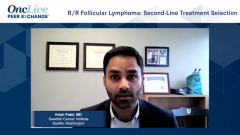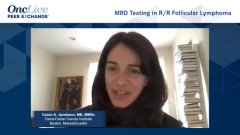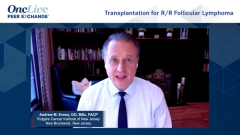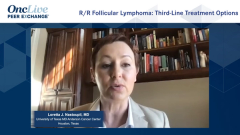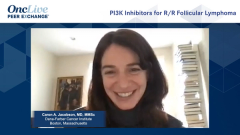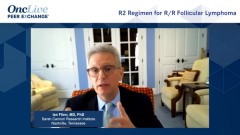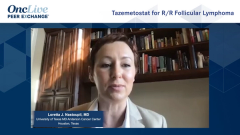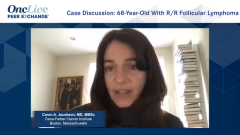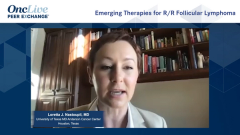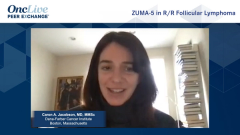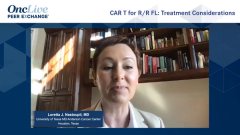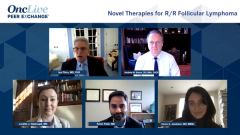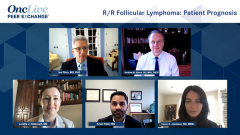
R/R Follicular Lymphoma: Third-Line Treatment Options
Currently available third-line treatment options for relapsed/refractory follicular lymphoma and unique considerations when selecting an appropriate therapy in this setting.
Episodes in this series

Ian Flinn, MD, PhD: Loretta, I’m going to move on and talk about third-line therapy for patients with follicular lymphoma. I really hope you can set the stage. What are some of the unique considerations when choosing third-line therapy for patients? What unmet needs do you see for this patient population?
Loretta J. Nastoupil, MD: Just as you heard from the panel, in follicular lymphoma we are lacking a good biomarker that will help us select among the many treatment options throughout the heterogeneous clinical course. For some of these patients, it will have been 10 years between their first and second treatments, but usually by their third line of treatment, they start to blow through treatments relatively quickly. There are many factors that we have to take into account when selecting between the various options. Until recently, we essentially had a PI3 kinase inhibitor and a smattering of other options. That’s now expanding quite rapidly. So it becomes more interesting. How do you select therapy? Are there patient-specific characteristics? Are there disease-specific characteristics that might inform what your preferred treatment option is? That is evolving.
I still think there is an unmet need in this setting. As patients get to third- and later-line settings, our expectations for those therapies, albeit with some of the caveats of the newest treatments, are median PFS [progression-free survival] rates of about 9 to 11 months. These are patients may be in their 70s or in their 50s. Those 2 patient groups might be approached very differently, but an 11-month PFS is disappointing either way.
Ian Flinn, MD, PhD: I have to agree with that.
Krish, before we dive into details, what are the treatment options for patients in the third-line setting? Of course, it probably varies depending on what they had in the frontline and second-line settings.
Krish Patel, MD: This is where we’ve really started to see a lot of nonchemotherapy-based options used. Certainly, for some patients who have not previously had lenalidomide-based therapies, this might be an option in the third-line setting. However, we see many patients receive that in the second-line setting as well. As Loretta mentioned, we have a host of PI3 kinase inhibitors there. Early use of idelalisib, for example, may have been more limited. More recently, we’ve got duvelisib and copanlisib, as well as the approval of an epigenetic modifier, tazemetostat, which is really our newest approved therapy in that setting. Those are our approved therapies. We have a broader array of tools to use in that setting than we used to. Ultimately, how we choose them is still a bit complicated.
In clinical trials, as well, which many of us are fortunate to have access to, a host of immunotherapies are being developed, including bispecific antibodies, CAR [chimeric antigen receptor] T cells. Of course, as Andy mentioned, there may be the rare patient for whom we still think about allotransplant. This setting has really shifted away from chemotherapy toward more targeted therapy and immunotherapy.
Transcript Edited for Clarity


